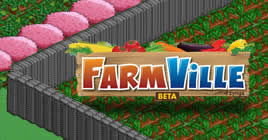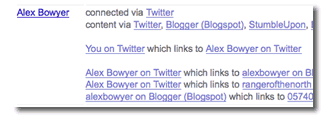
I’ve realized I’m the least interesting person I know. My social networks tell me so.
Right now, one of my online contacts is cooking; one’s hiking in Nepal; one’s mixing music; one’s boarding a flight to Europe; one explained an idea I had better than I ever could; and one just launched some software I wish I’d built. At least, that’s what their status updates remind me.
Call it Status Update Anxiety.
Happiness is relative, as Alain de Botton so eloquently tells us. We compare ourselves to our peers, and use this as the basis for our self-esteem. In a TED presentation he gave, he makes the point that few people envy the Queen of England — after all, she’s not that like you and I, with her funny accent and strange family rituals — but we all envy the latest tech wunderkind, the classmate who flipped a house, the brother who made some smart investments.
These objects of our disaffection are just like us. Every time Sergey Brin gets up on stage in jeans and a T-shirt, he reminds us that we could have been him if we’d only thought of Pagerank. This is, of course, a gross misstatement — but the mainstream media can’t convey the underlying complexity of achievent. Many inventions seem simple in retrospect, and the one-page writeup in Wired Magazine can’t do justice to the years of hard work. As Sheryl Crow said, it takes a long time to become an overnight success.
Read more »








 @
@ Tags:
Tags: 

 Richard Rushfield has spent the last few years writing the memoirs of his college years in the mid-1980s. As it happens, just as he needed to find more material to expand on the fragments he remembered, Facebook exploded, and suddenly his past was alive again, all those people he remembered could be consulted and could contribute to the memoir. But soon, the book and the discussions of it on Facebook re-ignited old feuds and the past he was trying to memorialize was alive and kicking again.
Richard Rushfield has spent the last few years writing the memoirs of his college years in the mid-1980s. As it happens, just as he needed to find more material to expand on the fragments he remembered, Facebook exploded, and suddenly his past was alive again, all those people he remembered could be consulted and could contribute to the memoir. But soon, the book and the discussions of it on Facebook re-ignited old feuds and the past he was trying to memorialize was alive and kicking again.










 Like all images on the site, the topic icons are based on images used under Creative Commons or in the public domain. Originals can be found from the following links. Thanks to
Like all images on the site, the topic icons are based on images used under Creative Commons or in the public domain. Originals can be found from the following links. Thanks to